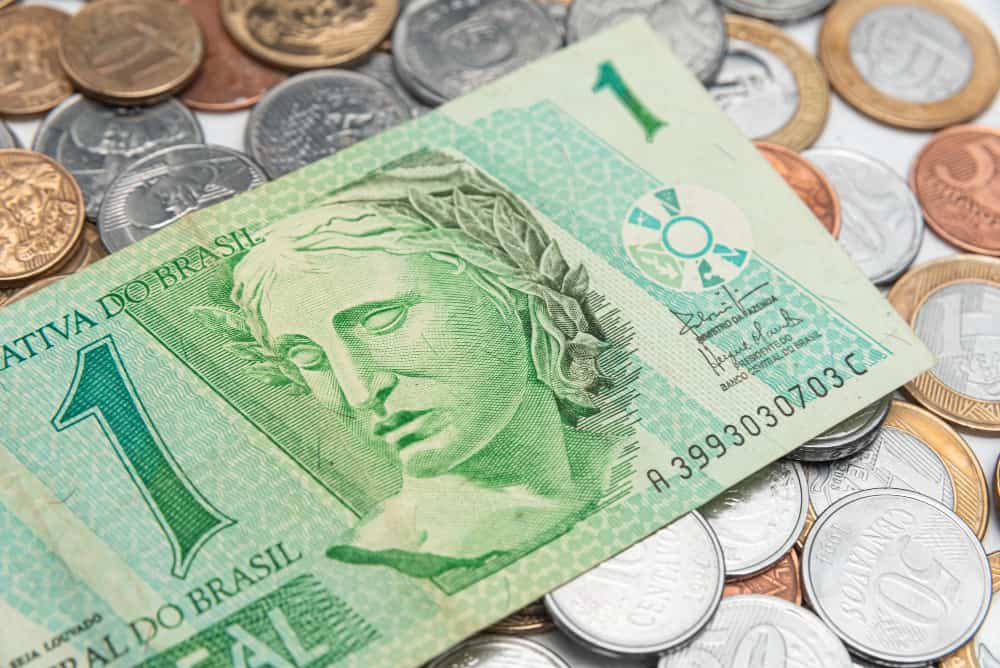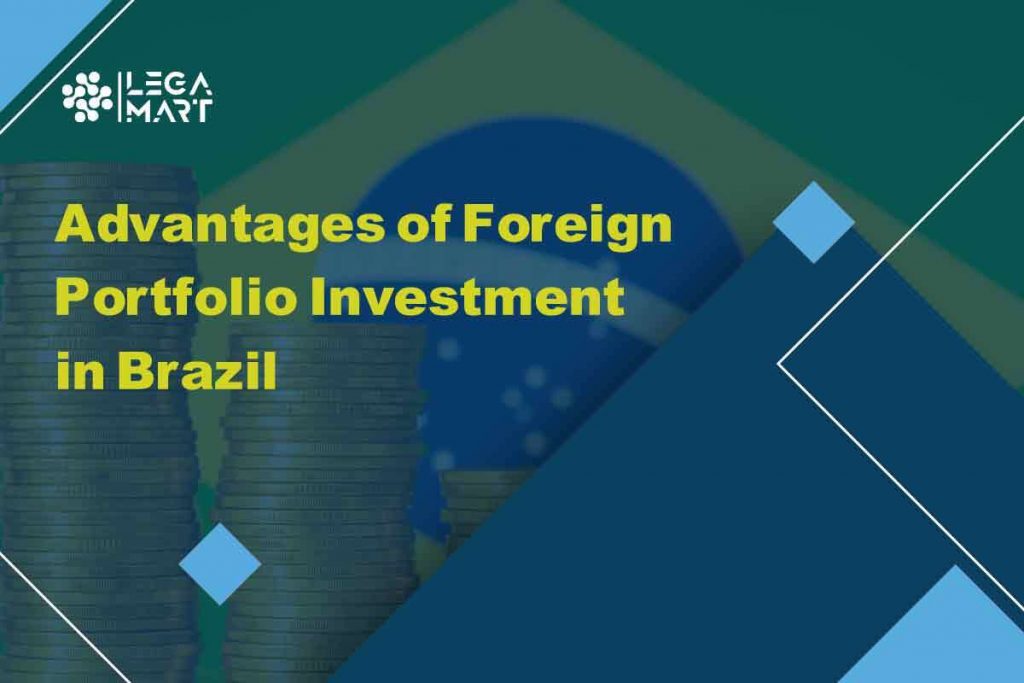- Introduction
- What is Foreign Portfolio Investment?
- Brief History of Foreign Portfolio Investment in Brazil
- Understanding FPI in Brazilian
- Advantages of Foreign Portfolio Investment in Brazil
- What are the Restrictions on Foreign investment in specific industry sectors in Brazil?
- Notable International Trade Agreements
- General Risks and Concerns About Foreign Portfolio Investment in Brazil
- Foreign Portfolio Investment in Brazil FAQ
- Conclusion
Introduction
Data on Brazil’s Foreign Portfolio Investment in USD millions is usually updated quarterly and has been accessible from March 1995 through September 2022. In December 2010, the FPI data attained its highest level ever recorded, amounting to approximately 25.278 billion USD, while reaching its lowest point of -21.706 billion USD in March 2020. Equally, in September 2022, Brazil experienced a decline in foreign portfolio investment, amounting to 3.579 billion USD, representing a reduction compared to the previous quarter’s drop of 7.605 billion USD.
Manual to Foreign Investment in Iran
What is Foreign Portfolio Investment?

Foreign Portfolio Investment (FPI) refers to the investment made by foreign investors in the financial assets of a country. These financial assets can include stocks, bonds, mutual funds, and other types of securities.
Foreign Portfolio Investment in Brazil has seen a significant rise in the last decade and continues to show potential. As we have seen throughout history, such political unrest and uncertainty often leave investors seeking clarity about the market’s future. It asks whether it is wise to engage in foreign portfolio investment in Brazil or if one should err on caution regarding FPI in Brazil.
Research conducted in early 2022 about the global investment outlook placed Brazil on the 22nd for investor confidence, making it 1 of only 4 emerging markets to make this year’s list. Brazil, undoubtedly, has a resilient economy. With a domestic market of 200 million people, it has the fifth-largest population globally, the twelfth-largest economy globally, and the fourth-largest internet market with 140 million users (a vital asset in a digital innovation environment).
With still-moderate interest rates (which will inevitably rise slightly to manage inflation), considerable returns, and advantageous currency exchange rates, Brazil offers an excellent destination for Foreign Investment, particularly Foreign Portfolio Investment. As such, this Article aims to uncover whether the potential outweighs the risks investors face in the Brazilian market.
Brief History of Foreign Portfolio Investment in Brazil
Foreign portfolio investment (FPI) in Brazil has begun to acquire traction in this broadly defined and interpretable environment, and its application is gaining traction throughout the business. FPI occurs when investors purchase securities on a foreign financial market, primarily stocks, bonds, and funds. The general assumption in the industry has historically been that FPI does not have a direct enough influence on the local economy to be counted as FDI because securities may be swiftly sold off and do not carry a sizable share of the underlying assets.
The number of purchasers on the Brazilian stock exchange has significantly increased. There are more than 3 million individual investors, a five-fold increase from three years ago. One of the most alluring possibilities has proven to be the real estate industry. Brazilian developers participated in six IPOs in 2020, raising R$5.2 billion. Since then, this number has increased twofold. Real estate returns are highly alluring. The Brazilian Association of Property Developers (ABRAINC) estimates that the average return from real estate purchased in 2020 will include capital growth and rental returns at 16.1%.
Understanding FPI in Brazilian
For a deeper understanding of foreign portfolio investment in Brazil, it is crucial to take a closer look at the legal system. FPI In Brazil is typically encouraged and is given the same privilege as domestic investments.
Brazilian law generally does not set a minimum capital requirement for foreign investments. There are a few exceptions, such as proving solvency to enter particular markets like healthcare insurance or participating in public tenders. In addition, legal representatives of foreign firms or individual investors must have a minimum capital to be granted permanent residence.
Except for some economic sectors, foreign investments are not subject to prior review or verification by the Central Bank.
Using the Central Bank Information System’s Electronic Declaration Register (RDE), foreign capital entering Brazil is electronically recorded. All investments available to citizens on the Brazilian capital market may also be made by foreign investors (individual or institutional), i.e., portfolio investments in Brazil. To do this, investors intending to venture into FPI in Brazil must employ the following:
- A legal representative is responsible for informing Brazilian authorities of the necessary investor information and registering the investor in the Central Bank’s RDE system.
- A tax representative will pay all taxes on behalf of the investor due to the transactions.
- A Brazilian Securities and Exchange Commission-registered authorized local custodian (CVM).
- A local broker who can execute the trades on behalf of the investor.
Advantages of Foreign Portfolio Investment in Brazil

Brazil’s political unpredictability and reliance on commodities make it riskier than established markets. Thus, investing involves a trade-off between return and risk, as in most developing markets. However, as previously discussed, foreign portfolio investment in Brazil has steadily increased. There are several parameters to consider when investing in the Brazilian market.
Brazil is well known to foreign investors for its abundant natural resources. Soybeans are Brazil’s top export; as of September 2020, they accounted for about 14% of all exports and totalled $33.2 billion, according to the Observatory of Economic Complexity (OEC). Aside from its vast offshore oil deposits, the nation produces more ethanol than all of Asia and Europe. In addition, it is the world’s second-largest iron ore producer, behind Australia, with $20.5 billion in exports.
With these resources, it can produce a wide range of industrial and consumer goods on a budget and act as a significant raw material provider to nations like China, the United States, and Argentina, its three main export markets. Brazil’s exports to China are valued at $64.3 billion, while the United States and Argentina are far behind at $29.3 billion and $15 billion, respectively.
Brazil’s economy is likewise fairly steady. Brazil has developed into a top-tier economy with a developing technology sector and an inward emphasis that should lessen its reliance on commodities after taking measures toward fiscal stability and liberalizing its economy in the 1990s.
What are the Restrictions on Foreign investment in specific industry sectors in Brazil?
Foreign portfolio investment in Brazil is subject to certain restrictions and regulations, for example:
- Limitation on investing in healthcare sectors
Until 2015, foreign companies were strictly prohibited from investing in companies engaged in the healthcare sector by the Federal Constitution unless authorized by a specific law. However, Law No. 13,097/2015 was later enacted to permit foreign investment in the healthcare sector under certain conditions.
These conditions include donations from international organizations associated with the United Nations or from entities that provide technical cooperation, financing, and loans, as well as investments in companies whose primary purpose is to install, operate, or develop hospitals, clinics, family planning activities, and research, and health services that serve employees and their families, outside of the public social security system.
- Limits on foreign ownership
For example, some sectors, such as banking and media, limit the percentage of ownership foreign investors can have in Brazilian companies. These limits vary depending on the sector and can be as low as 20%.
- Registration requirements
Foreign investors who wish to invest in Brazilian securities must register with the Brazilian Central Bank and the Brazilian Securities Commission (CVM).
- Investment limits
The CVM imposes investment limits on foreign investors in certain financial instruments, such as fixed-income securities and derivatives.
- Taxation
Foreign investors are subject to Brazilian taxation on their investments, including capital gains taxes and withholding taxes on dividends and interest payments.
- Reporting requirements
Foreign investors are required to report their investments in Brazilian securities to the Central Bank and the CVM regularly.
Notable International Trade Agreements
Foreign portfolio investment in Brazil also enjoys the added protection of International Trade Agreements. The newly constructed Free Trade Agreement between the European Union and the Mercosur, which went into effect on June 29, 2019, during the G20 Summit, can be seen as an unprecedented step toward economic success for Brazil.
By boosting exports and imports, allowing the exchange of ideas and technologies, and bringing Brazil closer to Europe, the subsequent lowering of import tariffs and barriers will enhance both economies. Additionally, it suggests a political alliance and is hence all-inclusive. It will boost regional economic stability and boost investor confidence. It has been hailed as an essential step in attracting FPI in Brazil.
Brazil is also a member of the World Trade Organization (WTO). Therefore, the following accords apply to its territory:
- General Agreement on Tariffs and Trade (GATT).
- General Agreement on Trade in Services (GATS).
- Technical Barriers to Trade Agreement (TBT Agreement).
- Sanitary and Phytosanitary Measures (SPS Agreement).
- Agreement on Trade-Related Investment Measures (TRIMs).
- Agreement on Trade-Related Aspects of Intellectual Property Rights (TRIPs).
General Risks and Concerns About Foreign Portfolio Investment in Brazil

Foreign portfolio investment in Brazil comes with its own set of risks. Brazil has a long history of political uncertainty, a critical risk of investing there. Numerous officials were implicated in criminal activity in 2015 and 2016 that involved the partially state-owned oil corporation Petrobras. In August 2016, former president Dilma Rousseff was impeached and found guilty due to these scandals. Due to the sanctions imposed on the companies implicated in these scandals, some of their commercial chances have been reduced, creating openings for foreign businesses to come in and continue where they left off.
Brazil, too, depends substantially on foreign financing but is more dependent on exports than industrialized nations like the United States. The economy has suffered as a result of the decline in commodity prices. The government is rebuilding the economy with foreign investment.
Given these risks, Foreign portfolio investments in Brazil can be risky for investors, so it is always a good idea to have a legal expert backing you up with your decisions. Visit the LegaMart directory and hire a lawyer based on your requirements right from your smartphone.
Foreign Portfolio Investment in Brazil FAQ

What is Foreign Portfolio Investment in Brazil?
Foreign Portfolio Investment (FPI) in Brazil refers to the investment made by foreign investors in Brazil’s financial assets, including stocks, bonds and mutual funds. FPI is considered a short-term investment, as investors can easily buy and sell financial assets in Brazil’s markets.
What are the main drivers of Foreign Portfolio Investment in Brazil?
The main drivers of Foreign Portfolio Investment in Brazil include favourable interest rates, natural resources, advantageous geographic location, a large domestic consumer market and strong international trade.
How does Brazil regulate Foreign Portfolio Investment?
Brazil’s Central Bank and Securities and Exchange Commission oversee foreign investment in the financial markets and have established rules and procedures for foreign investors.
Conclusion
Brazil’s GDP growth has increased by roughly 1.3% since 2016. Brazil had a new recession in 2020 as a result of COVID-19. Though Brazil accounts for 35% of the region’s GDP, the country’s economy showed signs of expansion and was crucial to the development of the Latin American economy.
According to Bloomberg, the Brazilian economy recovered swiftly, with exports and domestic demand increasing by 9.47% from July to September 2020 compared to the prior months. Foreign portfolio investment in Brazil has stood the test of time, and it is predicted to continue to do so, if not show further growth and development.
Brazil has remained resilient in the face of uncertainty, and if history indicates, the market will continue to thrive. Foreign investors have the chance to profit from Brazil’s expanding market as the country recovers from the economic effects of COVID-19, particularly given the country’s low-interest rates. Brazil’s lucrative industries include real estate and agricultural products, including coffee, sugar cane, corn, and soybeans. By participating in these industries, Brazil increases the size of its domestic market and, in turn, the global market.
FPIs are all about evaluating strategies, controlling risks, and getting maximum returns, but what needs to be kept in mind is the need for backend work that goes into FPI. There are various steps in the FPI process, from registrations to getting a memorandum of understanding, which results in various questions that only a legal expert can answer for you!
If you want to start FPI in any country, you will probably have many questions. However, you needn’t worry when LegaMart has got your back. You can drop your questions on our community page, and we’ll get them answered right away.




